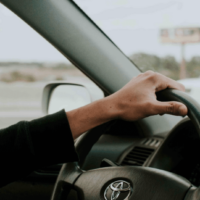What to Do After a Car Accident

None of us expects to be involved in a car accident on the way to work or while running errands, but car accidents happen unexpectedly every day. Being involved in a car accident can be traumatic, and you may wonder what to do immediately afterward. After you bring your car to a stop, it is wise to take the following steps. Preparing ahead of time for a car accident will help you remain calm, cool, and collected should it happen to you. Taking the time to consider what you will do after a car accident will also help you protect your right to sue for compensation in court.
Do Not Leave the Accident Scene
All drivers must stop after a car accident and stay at the car accident scene until law enforcement officers arrive. The exception to this rule is for accidents that do not cause bodily injury or property damage above $500. For all other accidents, you need to stay and speak to law enforcement personnel. Turn your car off as quickly as you can. If you are involved in a fender-bender, try to drive to the side of the road or to a safe location. If you are severely injured and unable to drive, try to turn off your car and wait for emergency medical services to help move you safely out of the vehicle.
Call 911 and the Police
If you are injured, or your passengers are injured, we recommend calling 911 and requesting emergency medical services. Even if you do not feel like your injuries are severe, emergency medical personnel will be able to review your symptoms and determine whether you may have suffered a concussion, brain injury, or some type of internal organ damage. If the emergency medical personnel recommend that you go to the hospital, go to the hospital. You do not want to avoid treatment for a condition because it could be dangerous and make your situation worse. Additionally, if you avoid treatment, the defendant in a potential lawsuit could claim that you were not really injured or that you did not take your injury seriously enough.
Next, you will need to call the police department so they can send an officer out to create a police report. The police report can be incredibly helpful when it comes to proving liability and damages. The officer will note how the accident occurred, how the vehicles are located, and any other important information. If you think the other driver was at fault, and you noticed texting, swerving, or any other signs of distracted or drunk driving, be sure to tell the officer what you saw. Again, be incredibly careful not to admit fault yourself.
Do Not Admit Fault
When you speak to law enforcement, be sure that you do not admit fault either intentionally or unintentionally. Insurance companies and the defendant will try to use any statements you make against you to prove that you were not injured or that you do not deserve as much compensation as you are requesting. Even if you have a pretty good idea of what happened to cause the motor vehicle accident, you may be in shock from the accident, and that could lead you to admit fault due to the stress of the situation accidentally. Investigators and your attorney will be able to help you prepare a statement for insurance companies. When you speak to law enforcement, however, stick to the facts of what you know. Do not elaborate or assume things you did not see. If you notice that the other driver seemed drunk or stumbling around, tell the police officer because it could indicate drunk driving.
Contact Your Insurance Company
If you need to be taken to the hospital by paramedics, insist that your hospital bill your own health insurance company. Hospitals will often try to talk patients into billing the insurance of the other at-fault driver. However, if you do so, go give away your pricing discount. There is also no guarantee that the other driver’s insurance will pay for all of your medical services, especially if they are severely underinsured.
You also need to contact your own car insurance company. All insurance companies require their policyholders to notice a motor vehicle accident within 30 days of the crash happening. If you do not report the accident, they may be within their rights to deny an underinsured or uninsured drivers claim. Many of our clients are worried about their insurance rates going up. Remember that these insurance companies will discover the crash when they look up your driving record for your annual review. If you do not give them notice, you may risk not using your underinsured motorist insurance. For example, say the at-fault driver’s insurance company has a limit of $50,000, and you need a surgery that costs more than that. You will need to claim the difference with your own insurance company. If you fail to report the accident on time, however, your insurance company may deny your claim.
Contact an Car Accident Lawyer
Navigating your rights after a car accident is a complicated process. You need an experienced lawyer on our side who will ensure that you protect your right to bring a personal injury lawsuit. If you think your property damage and medical expenses will be over $4,000, you need to hire a lawyer to represent you. Insurance companies are notorious for offering low settlement amounts to get people to go away. Your attorney will be able to negotiate with the insurance company and get you the most amount of compensation possible. Contact Rice McGowan & Brandt today to schedule a free consultation with one of our skilled car accident lawyers.
